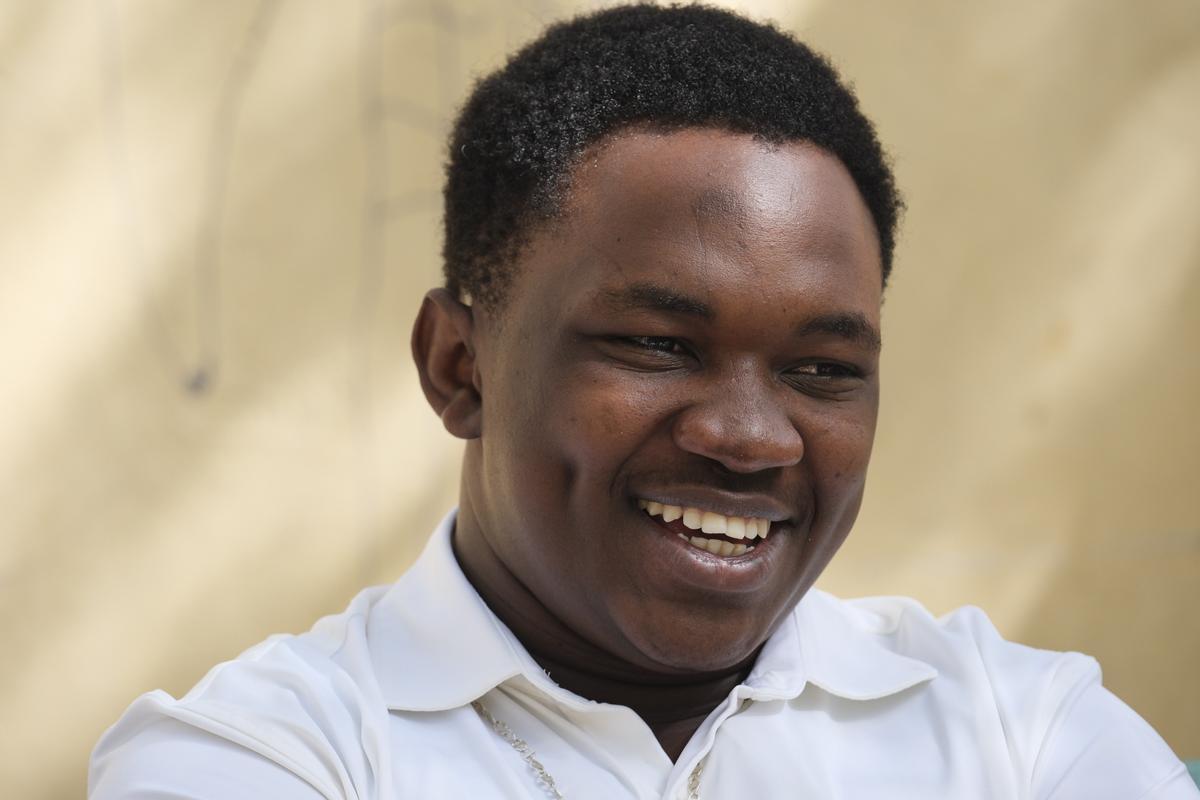The day Mor Mbengue turned 18, at the juvenile centre in Tenerife where he lived, he was asked to pack his bags, just like his friend Brehima Niakate. Both avoided being on the streets thanks to the generosity of some friends, and both have started to build their lives in an apartment at Mensajeros de la Paz.
Mor (Senegal, 2005) and Brehima (Mali, 2006) arrived in a makeshift boat in 2020, the former at the port of Los Cristianos, in Tenerife, and the latter at Arguineguín, in Gran Canaria. Until a few months ago, they were among the nearly 6,000 African children and teenagers under the guardianship of the Canarian government.
Their experience encapsulates the highs and lows of a reception system that has been growing for the past four years, a network of centres for migrant minors that has been overwhelmed for too long, where most educators try to help the young people as best they can, with some cases of hardships and abuses that even the President of the Canary Islands acknowledges are shameful.
Like all minors who arrive in Spain in makeshift boats, Mor and Brehima were offered a roof, food, and education on the islands until they came of age; both made the most of the Spanish classes and went through training modules designed to help them secure future employment in trades such as hospitality, agriculture, or construction.
However, like many others, they turned 18 without regularization of their documents, despite being under the guardianship of a public administration for four years, practically setting themselves up for marginalization once they leave the minor’s network. That day, they ceased to be unaccompanied minors and directly became irregular migrants.
“The day I turned 18 was very sad because I had nowhere to go. A friend helped me. It was tough because I had to leave his house at 8 in the morning and then spend the day walking the streets until 8 in the evening to have dinner and sleep on a sofa. Then I met a girl who brought me to Mensajeros de la Paz. I was lucky to be able to enter their apartment,” recounts this young Senegalese man.
Currently, he works as a mediator at a reception centre in Tenerife with newly arrived boys from Senegal, Mali, Morocco, Burkina Faso, or Mauritania eager to work and send money home. He knows that they all need a role model, someone with authority to ask them for patience, to encourage them by example to study and train as much as they can while still minors.
Mor is familiar with the pressure they are under: the juvenile centre is very tough for them because they are all used to working and contributing to the family economy from a young age. “In my centre,” he says, “on Fridays, sometimes they gave us seven Euros. I saved up. When I had 100 Euros, I sent it to my mother.”
In these weeks, with the debate on the guardianship of migrant minors being discussed throughout Spain due to the failed reform of the Foreigner’s Law, Brehima and Mor are hurt by some people connecting young people like them with criminality and saying that “they come to steal.”
“Who do they think is going to spend eleven days at sea to come and steal? No one. I came to seek a better life for myself and my family,” retorts Brehima, who remembers every night he spent at 14 years old in the makeshift boat, eventually without food or water, until he was rescued by Maritime Rescue. They didn’t even have any petrol left.
To the makeshift boat without their family knowing
[–>
The boy studied in his village in Mali and helped his father with the field and the livestock.Brehima set out to find something better in Kayes, a city on the border with Senegal, where someone encouraged him to take a risk on a small boat. He boarded without telling his parents, as they would not have allowed it at home. Mor did the same.
Before returning to juvenile centres as an educator, the young Senegalese man went through very tough jobs, like carrying dozens of kilos of bananas in plantations in Tenerife or working at night on a chicken farm. He didn’t like them, but he learned; among other things, that he is not “stealing jobs” from anyone.
“It is rare to find a white person working in the farms. If you enter one, you will only find black people here. They cannot say we are coming to steal jobs, we take the hardest jobs until we get what we want. I was working on the farm. I know it is very tough. There were no white people there, only black people carrying the pineapples,” he emphasizes, before adding that he is very thankful to Tenerife and that his life plans are on this island.

Malian youth Brehima Niakate shares his experience with EFE after leaving the juvenile centre at 18 and his aspirations in Spain upon arriving in the Canary Islands by boat. EFE/Alberto Valdés / Alberto Valdés
Brehima has also done well since joining the Emancípate programme. He studied a vocational training medium degree and works as an assistant cook in a guachinche (a traditional Canarian food establishment), cooking and serving the locals the inevitable perra (a glass) of local wine, to accompany.
Can one integrate more in the Canary Islands? “When I am not working, I train. I spent two years with Guamasa and now I am on the University of La Laguna team,” explains Brehima. His thing is Canarian wrestling, a sport that boasts another Malian, Mamadou Camara, the powerful pillar A of the Tegueste Wrestling Club, among its stars.
[–>
Like Brehima, Mamadou also arrived by boat. It was in 2008, at 15 years old: he too was a foster child.
















